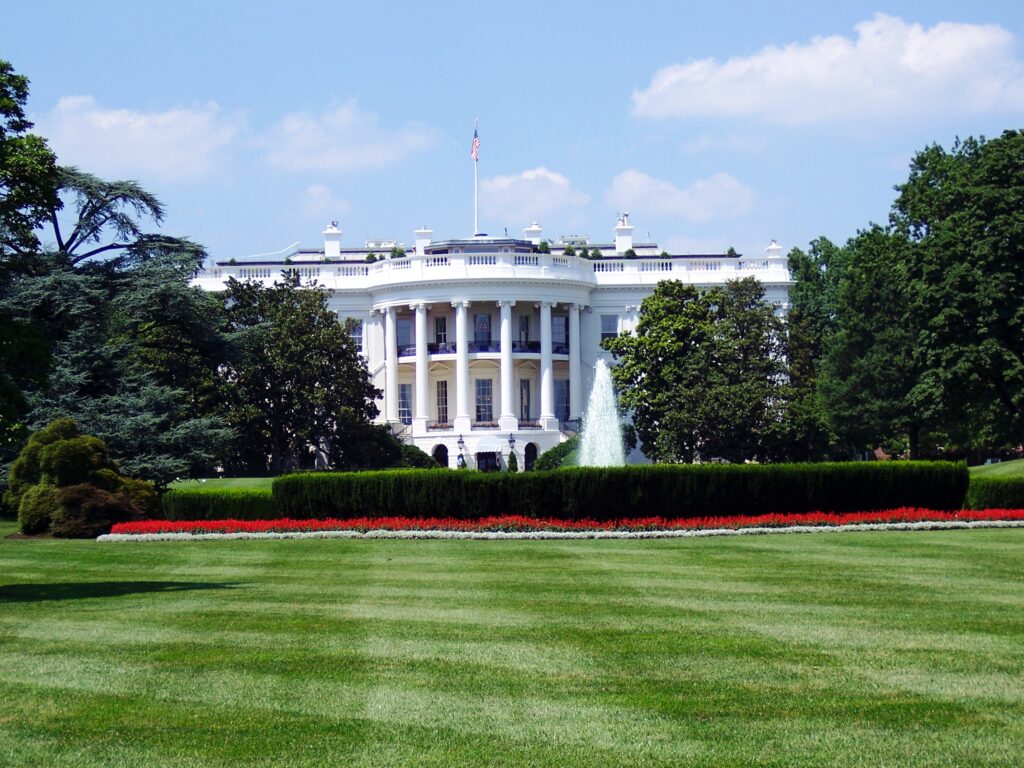Executive Branch News
ARPA-H Announces New Program ARPANET-H
The Advanced Research Projects Agency for Health (ARPA-H) within the U.S. Department of Health and Human Services (HHS) announced a new nationwide health network, ARPANET-H. Within ARPANET-H, three research hubs have been developed, including the Customer Experience hub, the Investor Catalyst hub, and the Stakeholder and Operations hub. Notably, the Customer Service hub priorities include developing accessible health solutions and diversifying health solutions. The Investor Catalyst hub priorities include transforming innovative ideas into tangible solutions and the Stakeholder and Operations hub will focus on agency and stakeholder partnerships. Stay tuned to COSSA’s continued coverage of ARPA-H.
BJS Celebrates 50 Years of National Crime and Victimization Survey
On September 27, the Bureau of Justice Statistics (BJS) within the Department of Justice’s (DOJ) Office of Justice Programs (OJP) hosted a public seminar celebrating 50 years of the National Crime and Victimization Survey (NCVS). The survey is the only crime and victimization survey in the United States that addresses underreported crime through survey collection rather than police reporting. The NCVS is used to understand crime patterns and the impact of that crime in different households, recognizing victims that may have been indirectly affected by the crime. The seminar included panels that discussed the past, present, and future of the NCVS, including…
NSF Invests $18.8M in Inaugural Cohort for ExLent Program
The National Science Foundation (NSF) recently announced its inaugural cohort of the Experiential Learning for Emerging and Novel Technologies (ExLENT) program, investing $18.8 million across 27 teams at U.S. institutions of higher education to expand practical learning opportunities and grow talent nationwide. This includes support for teams from minority-serving institutions and historically Black colleges and universities (HBCUs). Initiated by NSF’s Directorates for Technology, Innovation, and Partnerships (TIP) and STEM Education (EDU), ExLENT is primed to offer hands-on learning experiences in sectors outlined in the CHIPS and Science Act. This spans areas like advanced manufacturing, artificial intelligence, biotechnology, quantum information science, and…
NSF Supports Efforts to Broaden Participation in the Nation’s Technology Workforce
The National Science Foundation (NSF) has pledged a commitment of nearly $5.8 million towards two pivotal projects, partnering with the Council of Graduate Schools (CGS). Aimed at promoting inclusivity in the advanced degree programs across key technological areas identified in the CHIPS and Science Act, this investment will bolster data resources and aide endeavors in the recruitment and retention of domestic graduate students from diverse backgrounds in STEM fields. Their collaborative goal with CGS is to broaden the scope of existing survey designs to collect data on graduate applications, admissions, enrollment, and completion rates. Encompassing around 60 institutions, this survey is expected to…
HHS Proposes New Rule to Prevent Discrimination Against Individuals with Disabilities
The Office for Civil Rights (OCR) within the U.S. Department of Health and Human Services (HHS) has proposed a new rule, Nondiscrimination on the Basis of Disability in Programs or Activities Receiving Federal Financial Assistance, to prohibit discriminatory practices against individuals with disabilities. The new rule intends to expand upon Section 504 of the Rehabilitation Act of 1973. It would clarify already existing protections and implement new conditions within this act, including: HHS is requesting public comment on the proposed rule that can be submitted here. Comments are requested by November 13.
NIH Requests Comments on Biomedical and Behavioral Research Real-World Data
The National Institutes of Health (NIH) released a request for comments on the collection, use, and sharing of biomedical and behavioral science research real-world data (RWD). RWD refers to observational data that is gathered from patients in real-world settings, including but not limited to patient surveys and electronic records. As the NIH develops guidelines for RWD, submitted comments are expected to aid the NIH in understanding public concerns of this type of data. The public is asked to comment on the following items: Comments are requested by December 14 and can be submitted here.
NIMH Launches New Podcast Series to Commemorate its 75th Anniversary
The National Institute of Mental Health (NIMH) within the National Institutes of Health (NIH), in celebration of its 75th anniversary, announced the inauguration of their new podcast series, “Mental Health Matters”. This series aims to dive deep into the narrative journeys of key figures making strides in mental health research while also spotlighting the experiences of individuals navigating life with mental health challenges. Episode one is titled, “Understanding and Preventing Youth Suicide.” The episode features a compelling conversation between NIMH’s Director, Dr. Joshua A. Gordon, and Dr. Arielle Sheftall, an Associate Professor in the Department of Psychiatry at the University of…
OMB Issues Trust Regulation RFI within the Confidential Information Protection and Statistical Efficiency Act
The White House Office of Management and Budget (OMB) released a request for information for the codification of the four fundamental responsibilities of the Codification of Statistical Policy Directive No. 1 (Trust Regulation) within the Confidential Information Protection and Statistical Efficiency Act (CIPSEA). The responsibilities are the production of relevant and timely data, ensuring that data is credible and accurate, remaining objective, and protecting confidentiality. In a recent webinar on the Trust Regulation hosted by the American Statistical Association, a COSSA Governing Member, U.S. Chief Statistician, Karin A. Orvis, highlighted the importance of codifying the responsibilities to improve transparency in the agency and improve public…
National Board of Education Sciences Meets for the First Time in Six Years
On September 11, the Institute of Education Sciences’ (IES) National Board of Education Sciences (NBES) met for the first time in six years. As previously reported, the Biden Administration appointed members to NBES in November 2022, allowing the board to resume it’s work with the institute to ensure their priorities are consistent with its mission. NBES is also responsible for strengthening procedures for technical and scientific peer review, presenting recommendations to improve education research, soliciting advice and information from the field, and ensuring IES is compliant with the Education Sciences Reform Act. The meeting was attended by Mark Schneider, director of IES, who…
NSB 2024 Honorary Awards Nominations are open
The National Science Board (NSB) is now welcoming nominations for its 2024 Honorary Awards. There are two awards for which nominations can be submitted: Deadline for nominations is September 29. Details on the two awards can be found on the NSB website.
White House Releases FY 2025 Budget Priorities for R&D
On August 17, the White House released a memorandum outlining the Administration’s priorities for research and development (R&D) for the fiscal year (FY) 2025 budget cycle. This memorandum, which is traditionally released annually by the Office of Management and Budget (OMB) and Office of Science and Technology Policy (OSTP), aims to set cross-cutting priorities for all federal research agencies to consider as they develop their budget submissions. The FY 2025 memorandum lists seven such priorities for agencies to consider: While the priorities listed are similar to those in the White House R&D memorandum for FY 2024, there is notably more…
NSF Announces the Establishment of a New Research Security and Integrity Information Sharing Analysis Organization
The National Science Foundation (NSF), via the Office of the Chief of Research Security Strategy and Policy (OCRSSP), announced the establishment of an independent Research Security and Integrity Information Sharing Analysis Organization (RSI-ISAO). This initiative aims to bolster the U.S. research community, which encompasses institutions of higher education, non-profit research institutions, and small to medium-sized for-profit organizations. Its objective is to address foreign government interference, champion security-informed decision-making, and bridge the research community with U.S. government agencies. The NSF is inviting proposals that detail an actionable strategy for the RSI-ISAO. Anyone interested in submitting a proposal is encouraged to present…
NCSES Launches Website for the National Secure Data Service Demonstration Project
The National Science Foundation’s (NSF) statistical agency, the National Center for Science and Engineering Statistics (NCSES), has launched a website for the National Secure Data Service Demonstration Project (NSDS-D). NSDS-D is one of the required projects authorized under the CHIPS and Science Act of 2022 (see previous COSSA coverage). The project is intended to inform the ongoing work to improve the governments’ data infrastructure system, including new ways of collecting and linking data. More details can be found on their website.
Office of Evaluation Sciences is Hiring for Multiple Positions
The Office of Evaluation Sciences (OES) is expanding their team! The OES is the recently established evaluations team within the U.S. General Services Administration (GSA). Expect to see multiple openings on USAJOBS and on the official OES website. The positions will be supporting federal agency evaluation priorities and the GSA’s evaluation priorities. Any potential applicants should prepare a USAJOBS profile and continue to monitor the OES opportunities page and the OES LinkedIn profile page for announcements.
NIH Requests Comments for Updating Mission Statement
The National Institutes of Health (NIH) is seeking comments from the public on updating their mission statement. The mission statement currently reads, “To seek fundamental knowledge about the nature and behavior of living systems and the application of that knowledge to enhance health, lengthen life, and reduce illness and disability.” The NIH is proposing to change this statement to read, “To seek fundamental knowledge about the nature and behavior of living systems and to apply that knowledge to optimize health and prevent or reduce illness for all people.” All interested parties are invited to comment on the proposed change by…
Dr. Alexis Piquero Departs BJS, Dr. Kevin M. Scott to Serve as New Director
Dr. Alexis R. Piquero, Director for the Bureau of Justice Statistics (BJS) within the Department of Justice Office of Justice Programs (OJP) has stepped down from his position and returned to academia effective August 17. Piquero was sworn in August 2022 (see previous COSSA coverage). During his time at BJS, Piquero focused on disseminating justice statistics to the public in an easy-to-read and timely manner. Piquero developed Just the Stats, a report series for the public. Dr. Piquero has been a vocal champion for the agency and the use of social and behavioral science research to policymaking. COSSA thanks him for his service. …
Save the Date: 2023 NIH Behavioral and Social Sciences Research Festival
The annual National Institutes of Health (NIH) Behavioral and Social Sciences Research Festival will take place virtually on December 5, 2023 and will be hosted by the NIH Office of Behavioral and Social Sciences Research (OBSSR) and the NIH Behavioral and Social Sciences Research Coordinating Committee. The festival will highlight recently funded behavioral and social sciences research supported by the NIH; bring together behavioral and social scientists within NIH communities to network and share ideas; and explore ways to advance behavioral and social sciences research. Agenda and registration information is coming soon and will be available on the NIH website.
National Science Foundation Job Opportunities and Announcements
The National Science Foundation (NSF) is gearing up for a busy start to the season and the Social, Behavioral and Economic Sciences Directorate is welcoming a new acting deputy assistant director to help. Dr. Evan Heit has been announced to fill the role, succeeding Dr. Antoinette WinklerPrins, following his recent position as the division director for the Division of Research on Learning within the STEM Education Directorate. Dr. Heit holds a Ph.D. in Psychology from Stanford University and has a background serving in leadership for different programs including Future of Work at the Human-Technology Frontier. The NSF is also still…
NIH Releases RFI For Biomedical and Behavioral Science Research
The Common Fund of the National Institutes of Health (NIH) has issued a request for information for challenges, opportunities, workshops, pilot initiatives, and other potential programs anticipated to advance areas of science within biomedical and behavioral research. The Common Fund is intended to support short-term, high-risk initiatives with the potential for high impact. To this end, NIH requests that submissions consider the potential impact on human health as well as the expected results within 5-10 years. The deadline for submissions is August 11.






